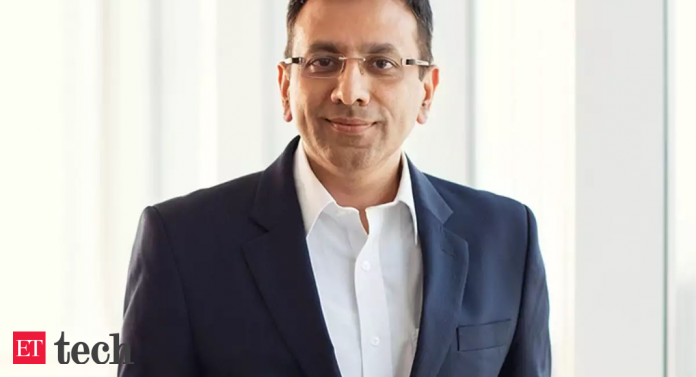The American company is “working globally and locally to figure out those right solutions in the next few months,” as India is too diverse a country to have “one big mega solution” for the developer ecosystem, country head Sanjay Gupta said.
Speaking exclusively to ET on the sidelines of a company event, Gupta said the Mountain View headquartered technology major is “very conscious of solving for India meaningfully and finding different solutions” for different kinds of developer ecosystems. “I am very confident that in the next few months, we should find a better solution.”
India’s internet startups such as Paytm and BharatMatrimony have been vehement in their opposition to Google’s Play Store policies and have demanded that it slash the fees and allow other payment mechanisms for customer subscriptions. They have claimed that the current fee structure levied by Google eats into the margins and impacts business revenue.
Last month, faced with mounting pressure from developers, the majority of which are in India, Google slashed the commission for in-app digital subscriptions to 15%, with effect from Jan. 1, 2021.
India is the largest market for Google in terms of users after the US and China.
Gupta said that while the reduced fees exempts 99% of developers, it still doesn’t address the issue for everyone.
‘Committed to Consumers’
“It’s a few people that we (still) need to solve for. And therefore, a sharper, directed approach (is needed) rather than one big mega solution,” he said.
In recent years, scrutiny of Big Tech companies such as Google, Apple and Facebook— which count India as one of their largest markets—has increased significantly. The Competition Commission of India ( CCI) is probing several allegations of monopolistic behaviour while the Centre has mooted the idea of an audit for algorithms deployed by the Big Tech companies.
Gupta admitted that as the internet and technology become deeper in India, the “scrutiny” on companies like Google is going to be “bigger”.
“That’s the reality. That’s going to happen more in the future than now. We have been very responsible and committed to consumers as we develop our products and services,” he said. “We explain because technology is complex, and it is new and changing fast.”
In India, Google will deal with issues on a case-to-case basis including queries over needs such as its algorithms to be audited, according to Gupta.
Holding that what the technology major does “is in consumer interest,” the India head said that “when cases come to us that question whether we are being fair, and (if we) are being monopolistic, we have been able to explain those positions well.”
Google-Jio
Gupta said the JioPhone, the Android phone launched with Jio Platforms, will be a game changer in the future as it will enable more people to gain access to the internet.
While India has its largest user base, Google’s revenues from the country are still very low, which he said would grow led by tech and startups as they would (advertise) to build new brands and new businesses.
“As the internet becomes deeper, the revenue per consumer will be low. But the overall revenues have started increasing,” said the 53-year-old who took charge of Google India in 2020. “To me, that’s the journey over the next five years, as we move from roughly 600 million to a billion users in India. India starts becoming meaningful and significant because of the scale of the number of consumers even though they have small money.”
The internet major is seeing more adoption of its cloud services by businesses, which is generating significant revenue from India. On Thursday, Google also announced a slate of new product features aimed at extending the benefits of India’s growing digital economy to more people through more local language and voice support in search, digital payments and vaccine slot booking during its flagship event.
The company which announced a $10 billion India Digitisation fund last year has made several investments including $4.5 billion in Reliance-owned Jio Platforms. It has also invested in InMobi’s Glance and VerSe Innovation, the parent company of DailyHunt, and Gurugram-based startup DotPe, which helps offline stores to sell online and collect payments digitally.
Gupta said that in the coming year, Google is making “strategic investments which can help drive the agenda or be the catalyst for digital transformation”. He added that the company has already made investments in the area of increasing Internet access and language. “Access for better services, SMEs and AI for good or social impact are areas we are looking for when we are thinking about investments,” he said.

























